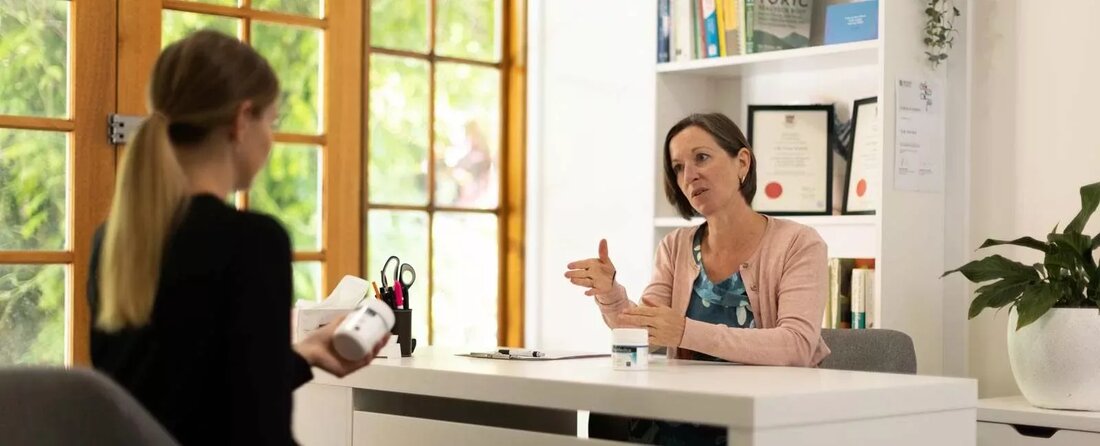Can alternative practitioners really help?
Evidence-based medicine (EBM) is considered a paradigm in conventional healthcare and has been proposed as a methodology for naturopathy. The underlying foundation of EBM is the randomized controlled trial, which is very valuable in evaluating individual treatments for individual diseases. There are randomized controlled trials that suggest that naturopathic treatments such as botanical medicine, nutritional therapies, acupuncture and physical therapy are effective in treating some medical conditions such as fibromyalgia, migraines, depression, asthma, hypertension and type II diabetes. While randomized control trials are effective in testing individual treatments, they may not be the best paradigm for evaluating the use of multiple treatments in patients with...

Can alternative practitioners really help?
Evidence-based medicine (EBM) is considered a paradigm in conventional healthcare and has been proposed as a methodology for naturopathy. The underlying foundation of EBM is the randomized controlled trial, which is very valuable in evaluating individual treatments for individual diseases. There are randomized controlled trials that suggest that naturopathic treatments such as botanical medicine, nutritional therapies, acupuncture and physical therapy are effective in treating some medical conditions such as fibromyalgia, migraines, depression, asthma, hypertension and type II diabetes.
While randomized control trials are effective in testing individual treatments, they may not be the best paradigm for assessing the use of multiple treatments in patients with more than one disorder or disease. For this and other reasons, some scientists have suggested that an evidence-based approach should include not only research findings but also clinical expertise and patient preferences (Geyman, 1998). For example, riboflavin, a B vitamin, has been shown in a randomized controlled trial to reduce the frequency and duration of migraine headaches when used for three months. Therefore, a naturopathic doctor will often use riboflavin as part of a treatment plan while also incorporating other treatments based on clinical expertise. These treatments may include using omega-3 fatty acids to reduce inflammation or an elimination diet to identify possible food or chemical triggers. Individual patients have different triggers - for some it could be MSG, for others it could be wheat. Noting individual responses is part of considering patient preferences.
In short, naturopathy is a personalized medicine that does not always lend itself to strict adherence to treatments based only on randomized controlled trials. Testing the value of individual treatments is important, but actual clinical application is much more complex. (And in fact, the clinical application of conventional healthcare follows a similar model: according to a recent article in the British Medical Journal, only 13% of standard tests and treatments are supported by strong evidence.)
Can naturopathy cure cancer or other deadly diseases?
The goal of naturopathy is to prevent illness and build a healthy body. If you have a potentially fatal illness, you should seek any form of treatment that may benefit you. Naturopathy and other forms of alternative treatment can help you manage your symptoms through holistic treatments and stress control. Many people have found relief for pain and other symptoms through herbal medications, acupuncture and massage therapy. These are just some of the treatments a naturopath can offer.
What is naturopathy?
Naturopathy is a system that uses natural remedies to help the body heal itself. It includes many therapies including herbs, massage, acupuncture, exercise and nutritional advice.
Naturopathy was brought to the United States from Germany in the 18th century, but some of its treatments are centuries old. Today it combines traditional treatments with some aspects of modern science.
How does naturopathy work?
The goal of naturopathy is to treat the whole person – body, mind and soul. It also aims to cure the causes of an illness – not just stop the symptoms.
A naturopath may spend 1 to 2 hours examining you. They ask questions about your medical history, your stress levels and your lifestyle habits. They can order laboratory tests.
Your personal health plan is usually discussed afterwards. Naturopathic medicine focuses on education and prevention, so your doctor can give you tips on diet, exercise or stress management. You could use complementary medicine – such as homeopathy, herbal medicine and acupuncture – in addition to naturopathic treatments. You can also use touch such as massage and pressure to create balance in your body. This is called naturopathic manipulative therapy.
What is successfully treated by alternative practitioners?
- Allergien
- Kopfschmerzen
- Fruchtbarkeitsprobleme
- Verdauungsprobleme
- Fettleibigkeit
- Hormonelle Ungleichgewichte
- Chronischer Schmerz
- Chronische Müdigkeit
- uvm.
You don't have to be sick to try natural medicine. Maybe you just want to improve your overall health or prevent illness.
In the event of an emergency or problem that requires a visit to the hospital, such as: If you have a major operation or a heart problem, you should still see a doctor in the hospital. However, naturopathy can support treatments and there are numerous reports that it has already helped with many diseases where conventional medicine was unsuccessful

 Suche
Suche
 Mein Konto
Mein Konto
